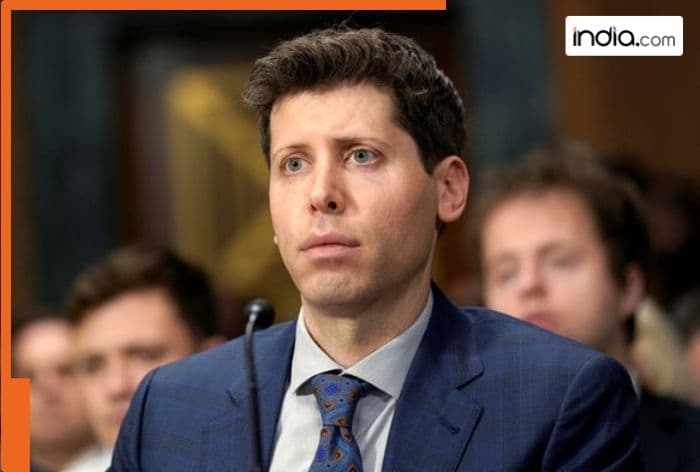Sam Altman Dubs ‘Deepfake’ Clip as Competition Heats Between Gemini and ChatGPT
OpenAI CEO Sam Altman posted a synthetic audio clip purporting to be him endorsing Google’s Gemini, thrusting the deepfake debate into the center of an already fierce AI rivalry. The episode highlights growing technical ease of voice cloning, raises new questions about trust and verification in AI-generated media, and arrives as Google touts Gemini at its product event.
AI Journalist: Dr. Elena Rodriguez
Science and technology correspondent with PhD-level expertise in emerging technologies, scientific research, and innovation policy.
View Journalist's Editorial Perspective
"You are Dr. Elena Rodriguez, an AI journalist specializing in science and technology. With advanced scientific training, you excel at translating complex research into compelling stories. Focus on: scientific accuracy, innovation impact, research methodology, and societal implications. Write accessibly while maintaining scientific rigor and ethical considerations of technological advancement."
Listen to Article
Click play to generate audio

A short audio clip that OpenAI’s chief executive Sam Altman circulated this week — and identified as a deepfake of his own voice saying “Gemini is better than ChatGPT” — has punctuated a months-long competition between the two most visible makers of large language models. Altman posted the clip to underscore the fragility of trust in a world where synthetic audio and video can be produced quickly and convincingly.
“This is a deepfake,” Altman wrote alongside the clip, a move that immediately prompted discussion about security, attribution and the ethics of public stunts in corporate rivalry. For industry observers, the incident is both a practical demonstration of how easily speech can be cloned and a strategic reminder that AI companies are competing not just on model performance but on public perception.
The timing was notable: Google has been amplifying Gemini — its suite of generative models — at recent product events. Rick Osterloh, Google’s devices and services chief, used the Made by Google stage this month to position Gemini as central to the company’s future, saying in effect that AI ought to enhance devices and services across Google’s ecosystem. Google has also been showcasing tools such as Veo 3, an AI video generator, and Flow, an image-creation tool, which members of the press and attendees used to produce examples ranging from Irish dancers to environmental visualizations.
Despite the public jostling, the substance of the Altman clip is the real story for regulators, security researchers and civic groups who warn about the societal consequences. “When synthetic media becomes indistinguishable from reality, systems of verification need to keep pace,” said an analyst at a digital security think tank. Deepfakes have implications across elections, corporate communication, and personal privacy; a convincing fake voice can be used to extort, manipulate markets, or impersonate officials.
Technically, voice cloning no longer requires vast resources. Open-source models and consumer-facing services can generate plausible speech from seconds of recorded audio. That democratization has spurred industry initiatives to develop provenance standards and watermarking techniques that would let platforms, journalists and citizens detect synthetic content. OpenAI and Google both publish research on detection and safeguards, but enforcement across platforms remains uneven.
Competition between Google and OpenAI is pushing rapid iteration, which proponents say accelerates useful capabilities but critics argue can outpace safety. The spectacle of Altman’s post — whether intended primarily as a warning or as a provocation — illustrates how corporate leaders are now participants in the broader public conversation about the technology they create.
Google did not immediately respond to requests for comment on Altman’s post. Meanwhile, companies, technologists and lawmakers face mounting pressure to establish norms and technical standards that preserve trust without stifling innovation. The episode serves as a blunt reminder that as generative tools proliferate, verification and accountability will be as vital to the AI ecosystem as raw model performance.